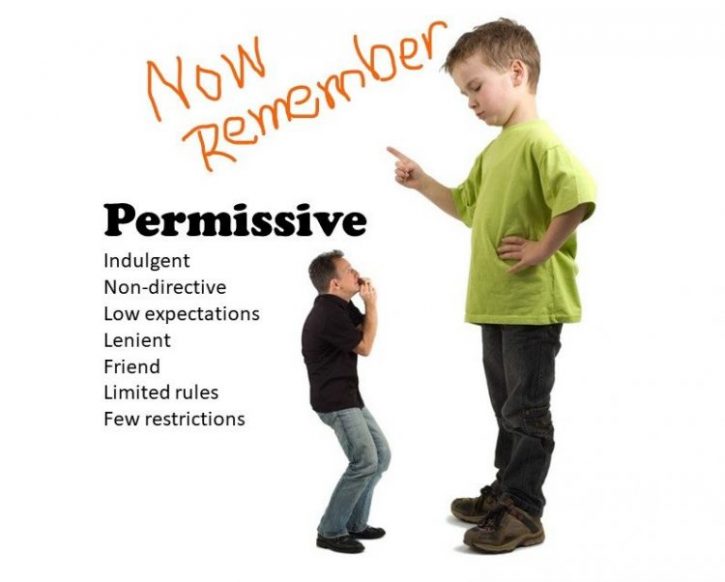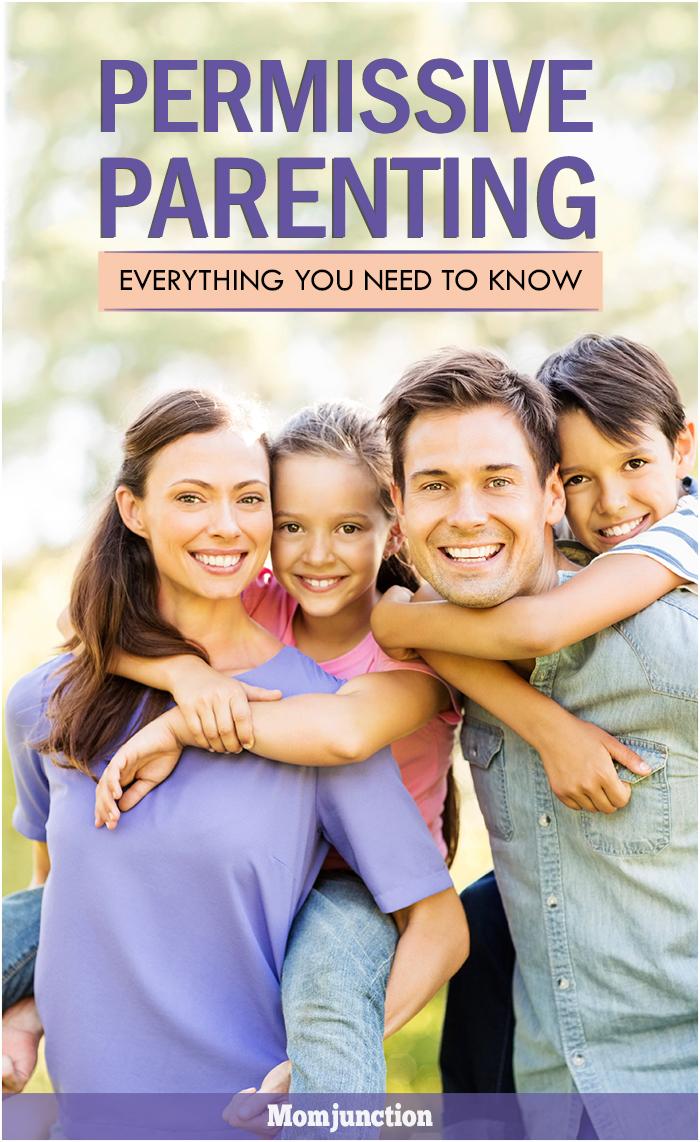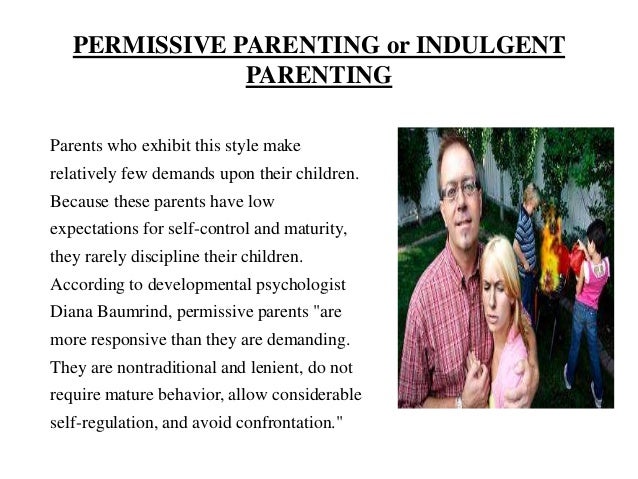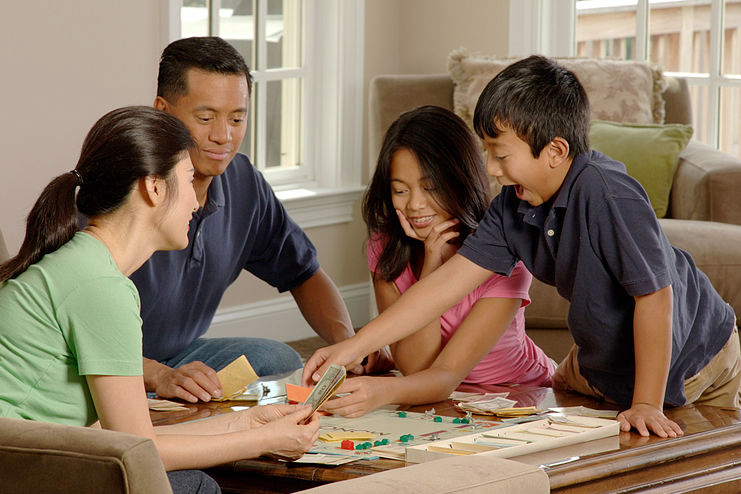Permissive Parenting Characteristics Permissive Parents Tend To Be Very Loving, Yet Provide Few Guidelines And Rules.
Permissive Parenting Characteristics. Baumrind's Parenting Styles In Psychology.
SELAMAT MEMBACA!
Permissive parenting is a type of parenting style characterized by low demands with high responsiveness.

These parents do not expect mature behavior from their children and often seem more like a friend than a parental figure.
The permissive parenting style involves very low or no expectations from their children.
The children with this attitude may exhibit poor or below average academic performance at school.

Characteristics of permissive parents some of the typical traits of permissive parents include:
Loving and nurturing, but without rules and boundaries.
Emotionally supportive, highly responsive, and less demanding.

Some characteristics of permissive parenting style include the inability to say no, lack of structure or routine, and not giving consequences for bad behavior.
What are the characteristics of the permissive parenting style?
Parents behave like casual friends:

The permissive parenting style involves very low or no expectations from their children.
The children with this attitude may exhibit poor or below average academic performance at school.
Such kids usually do not set any goals in life.

Kids do not have many responsibilities and are allowed to regulate their behavior and the majority of their choices.
When a parent is permissive, they look at their child as equal rather than children of a parent.
Characteristics the permissive parent requires less introduction than the authoritarian and authoritative parent.

The child has the control and the parent functions more like a friend than one in authority (cherry 2014).
Permissive parenting this style of parenting has very few rules and expectations of children.
Most times, the parents are loving and express caring about their children, but they don't see their.

These types of parents are warm and understanding towards their children;
They tend to be lenient to the extreme and avoid using discipline.
Permissive parents set very few rules and boundaries and they are reluctant to enforce rules.

Children of permissive parenting tend to have the worst outcomes:
Permissive parents usually take on more of a friend role than a parent role.
They often encourage their children to talk with them about their problems, but they usually don't put much effort into discouraging poor choices or bad behavior.
What is permissive parenting permissive parenting, also known as indulgent parenting, is a parenting style characterized by high responsiveness and low demandingness.
Permissive parents are very responsive to the child's emotional needs.
But they don't set limits or are very inconsistent in enforcing boundaries.

In the lack of such a structure, they tend to give in and fall easy.
Permissive or indulgent parenting style someone who parents in the permissive style is typically warm and kind to them.
However, they don't set limits for them or have any firm expectations for good behavior.

Parents with a permissive style of parenting are quite forgiving and neglect children's mistakes.
Permissive parents act more like friends rather than parents.
They do not believe in exerting strict rules on the children.
/2794957-what-is-permissive-parenting-5b2c035943a103003654116b.png)
The permissive parenting style matches to the behaviors of affection and responsiveness with the child, without any restrictions for appropriate behavior.
Mandara and murray (2002) used the approach of baumrind and they want to study the association between parental rearing, psychopathology, and competence in childhood and in adolescence.
Permissive parenting is a parenting style that fosters an emotional bond rather than imposing or enforcing rules and limitations.

That leaves indulgent or permissive parenting to occupy the space that allows for greater child autonomy, and downplays negative disciplinary tactics in favor of shaping behavior through parental warmth, positive social interactions, and reasoning.
Characteristics of permissive parents parents engaging in the permissive parenting style are characterized by certain behaviors.
Permissive parents might display the following behaviors:

Authoritarian parenting is a parenting style characterized by high demands and low responsiveness.
Parents with an authoritarian style have very high expectations of their children, yet provide very little in the way of feedback and nurturing.
Mistakes tend to be punished harshly.

Permissive parenting is one of baumrind's parenting styles.
It defines permissive parents as parents with high responsiveness but low demands on the child.
It is also known as i ndulgent parenting.permissive parents are sensitive to their children's emotional needs and impose very few rules or guidelines on their children.

Cavities may also be an issues because permissive parents do not enforce good health habits such as brushing your teeth.
Characteristics of permissive parenting in both parents and children:
Laissez faire parenting style, also called permissive parenting, allows children to decide without their parents' guidance or discipline.

They also avoid any kind of confrontation.
While authoritarian, permissive, and neglectful parenting style types when compared to authoritative parenting seem to be associated with higher probabilities of problems in adolescents, it is clear that not all adolescents in families with these parenting characteristics have difficulties.
The hallmark of permissive parenting is the lack of boundaries.

This goes back to the permissive parent's impulse to emphasize a child's freedom versus responsibly setting up any.
Pros and cons of permissive parenting characteristics of permissive parenting style.
Seem more like a friend than a parent.

Rules, if any, are often very inconsistent.
Ask for their children's opinions on major decisions.
Provide little in the way of a schedule or structure.

Clinical and developmental psychologist diane baumrind at the university of california, berkeley developed one of the most widely accepted categorization of parenting styles in the 1960s.
PD Hancur Gegara Bau Badan, Ini Solusinya!!Melawan Pikun Dengan ApelMulti Guna Air Kelapa HijauJam Piket Organ Tubuh (Limpa)Ternyata Cewek Curhat Artinya Sayang5 Makanan Tinggi KolagenTak Hanya Manis, Ini 5 Manfaat Buah SawoObat Hebat, Si Sisik NagaTernyata Menikmati Alam Bebas Ada ManfaatnyaJangan Buang Silica Gel!Baumrind's parenting styles in psychology. Permissive Parenting Characteristics. Clinical and developmental psychologist diane baumrind at the university of california, berkeley developed one of the most widely accepted categorization of parenting styles in the 1960s.
Want to see permissive parenting examples & permissive parenting examples in movies?
/children-coloring-with-army-seabag-in-background-180690924-59fe0d969e9427003cf074b5.jpg)
The top movies to watch related to permissive parenting are mr.
Hobbs takes a vacation, big daddy, parental guidance and cheaper by the dozen.
See our full list of 4 movies.

Parenting goals (01:59) good parenting includes a little of all three parenting styles:
Permissive parenting examples in movies you'll see permissive parenting style examples including from movies.
Permissive parenting (the pros & cons of this parenting style) interested in parenting?

The best movies about parents can also be great movies to watch with your parents.
Becoming a parent is both the scariest and most rewarding event of a person's life.
All of one's hopes, dreams, and greatest fears are summed up in the life of their child.

How does this impact children?
Permissive parenting is a type of parenting style characterized by low demands with high responsiveness.
Permissive parenting, also known as indulgent parenting, is a parenting style characterized by high responsiveness and low demandingness.
/142020696-56a792725f9b58b7d0ebcba4.jpg)
But they don't set limits or are very inconsistent in enforcing boundaries.
Permissive parents are not demanding.
Kids do not have many responsibilities and are allowed to regulate their behavior and the majority of their choices.

Similar to the authoritative style, they are emotionally supportive and responsive to.
Permissive parents are highly responsive towards their children's needs and nurture their talents and personality.
But they are least demanding because they have low expectations on children may love permissive parenting style as it gives them the maximum freedom without any strings attached.

Understanding what the permissive parenting definition is, learning your parenting style and making adjustments can help you make better parenting choices as you relate to your children.
Your parenting style can affect everything from how much your child weighs to how she feels about herself.
Permissive parents usually take on more of a friend role than a parent role.

Effects of permissive parenting style.
The developmental outcomes for children reared in permissive homes are also generally more negative compared to those reared in authoritative homes.
Permissive parents are low in demandingness and high in responsiveness.
However, they don't set limits for them or have any firm expectations for good behavior.
While being a 'helicopter parent' may be harmful, there is little place for uninvolved parenting styles in healthy parenting.
The permissive parenting style is an extremely relaxed approach where parents are generally warm, nurturing and affectionate.

They feel their children are capable of making their own decisions with little parental guidance.
Come let's catch a movie are you or your parents always saying yes & ok to your child's every whims?
If you answered yes, share with us why the style is use.

Permissive or indulgent parents mostly let their children do what they want, and offer limited guidance or direction.
They are more like friends than parents.
No particular discipline style is utilized.

A parenting style is a psychological construct representing standard strategies that parents use in their child rearing.
The quality of parenting can be more essential than the quantity of time spent with.
While permissive parents are often very responsive and loving, this parenting style is defined by having no rules.
/171626170-56a796663df78cf77297664b.jpg)
What is a parenting style?
The difference in styles was decided based on whether a parent was a high responsive or low responsive parent, and whether they were a high demanding or.
With permissive parenting the relationship dynamic between the parent and the child is the most like a friendship compared to all of the other parenting in high school years, this parenting style also affects academics.

In the movie the main character, cher, shares a.
In the lenient parenting style, the parents make all possible efforts for not upsetting their kids.
They make efforts to meet all the demands and requirements of their kids and thus all they we will discuss some permissive parenting examples for you to understand this parenting style in a better way
:max_bytes(150000):strip_icc()/1095045-article-types-of-parenting-styles-5a7cb6aaa18d9e00362ef5eb.png)
Taking diana baumrind's definition a step further by understanding the psychological fears of permissive confusion reigns when defining 'what is permissive parenting?' trying to find a universally applicable definition of permissiveness in.
Permissive parents may not even realize that they are being permissive, because in many cases their while these positive effects of permissive parenting will propel you to consider this style of or they may let the child spend too much time on the internet, watching distasteful movies, rather.
Are permissive parents too lax?
:max_bytes(150000):strip_icc()/cdn.cliqueinc.com__cache__posts__257740__permissive-parenting-257740-1526348101349-main.700x0c-5fe5837fb214484aa277e1ff809feba0.jpg)
How the consequences of permissiveness.
Certainly, studies have reported significant links between specific.
They're rated for a reason.

The parents i've known who are permissive allowed young children to have junk food and soda, to watch violent movies, to be home alone at relatively young ages.
Permissive parenting is accommodating parenting (sometimes even referred to as indulgent parenting).
These parents are highly responsive to their unfortunately, this parenting style means kids grow up without structure and therefore struggle with taking responsibility, do more poorly in.

Lectures are common permissive parents will use putdowns and lectures every time their children commit a mistake.
No rules permissive parents do not lay down any guiding principles for the functioning of the family. Permissive Parenting Characteristics. Lectures are common permissive parents will use putdowns and lectures every time their children commit a mistake.Ternyata Kamu Baru Tau Ikan Salmon Dan Tenggiri SamaResep Ayam Suwir Pedas Ala CeritaKulinerResep Ponzu, Cocolan Ala JepangResep Pancake Homemade Sangat Mudah Dan Ekonomis3 Jenis Daging Bahan Bakso TerbaikNikmat Kulit Ayam, Bikin SengsaraTips Memilih Beras BerkualitasPete, Obat Alternatif DiabetesResep Segar Nikmat Bihun Tom YamPetis, Awalnya Adalah Upeti Untuk Raja
Komentar
Posting Komentar